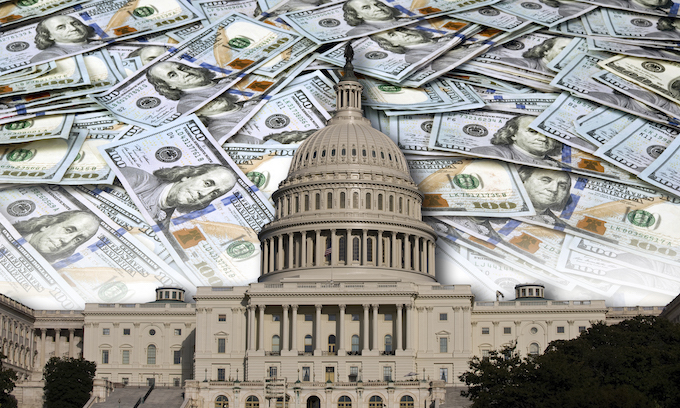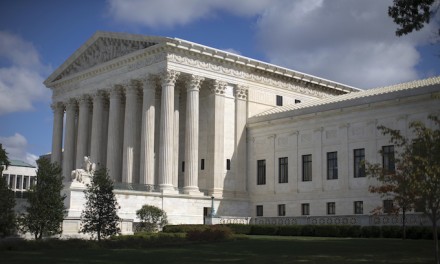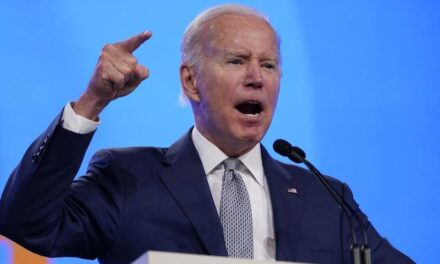Having used federal relief funding to help close a $2.2-billion hole in the state’s 2020 budget, Michigan officials warned Tuesday they now face a $3-billion hole for the budget year that starts Oct. 1 and called for more financial aid from Washington.
Gov. Gretchen Whitmer and state Budget Director Chris Kolb both criticized a proposed relief plan unveiled Monday by Senate Majority Leader Mitch McConnell as woefully short of what is needed.
“We need more help and leadership at the federal level,” Whitmer, who repeated her earlier call for President Donald Trump to impose a nationwide mask mandate, said at a news conference.
But a Republican congressman from Michigan hit back Tuesday, saying it is not the job of Congress to balance the state’s budget.
“I don’t know what would make Gov. Whitmer happy, unless we sent her a blank check,” said U.S. Rep. Paul Mitchell, R-Dryden Township.
Mitchell said some of the billions of dollars in reduced tax revenue the state is experiencing is “self-inflicted” because the shutdown Whitmer ordered was more extensive than was necessary and because Michigan was several weeks into the pandemic before the state took steps to furlough state employees.
Whitmer has said Michigan needed to take extraordinary steps to get the virus under control. Cases began to increase in Michigan after Whitmer lifted Michigan’s stay-at-home order on June 1. But state officials said Tuesday they may now have reached a plateau, while the number of deaths remains low compared to March and April and hospitalization rates remain under control.
Kolb said the Republican Senate plan contains “not one single new dollar” to help Michigan and other states to balance their budgets.
By way of contrast, the relief plan approved by the Democratic-controlled House would provide $13 billion in direct support to Michigan over two years, Kolb said.
Both Whitmer and Kolb also criticized the Republican Senate plan for school funding. Kolb said it “holds two-thirds of its education funding hostage unless schools reopen.”
Senate Republicans on Monday released their counterproposal on another coronavirus stimulus package, a roughly $1 trillion package that includes another round of direct checks to millions of Americans, more help for small businesses and money to help reopen schools.
Almost immediately, it was criticized by conservative lawmakers as misguided and expensive and by Democrats as a ridiculously late effort that falls short of the nation’s needs to weather the economic damage of the COVID-19 pandemic that has infected nearly 4.3 million Americans and killed more than 147,000.
Dubbed the Health, Economic Assistance, Liability protection, and Schools Act, or HEALS Act, the legislation is expected to kick off serious negotiations with House Democrats who in May passed their own Health and Economic Recovery Omnibus Emergency Solutions Act, or HEROES Act, projected to cost $3 trillion.
The stimulus packagee – the fifth since the pandemic began in March – is likely the last economic rescue package before the November election.
“We have produced a tailored and targeted draft that will cut right to the heart of three distinct crises facing our country: getting kids back in school, getting workers back to work and winning the health care fight against the virus,” Senate Majority Leader Mitch McConnell, R-Ky., said on the Senate floor.
Among the GOP bill’s key provisions as laid out by McConnell:
Another round of $1,200 checks for individuals ($2,400 for married couples), with more support for adult dependents. A “sequel” to the Paycheck Protection Program, the widely praised small business rescue program that has provided more than $500 billion to companies with fewer than 500 employees. The GOP proposal would give hard-hit firms with 300 or fewer workers a second opportunity to draw from the fund. A continued federal supplement to state unemployment insurance. The weekly amount is “eight times what Democrats put in place when they controlled the White House and Congress during the Great Recession,” McConnell said. $100 billion to help schools and universities reopen fully, a priority of President Donald Trump. $16 billion to expand state testing with an emphasis on schools, child care facilities and nursing homes. $26 billion for development of vaccines and therapeutic remedies to treat COVID-19. Freezing 2021 Medicare premiums at 2020 levels. Economic incentives to boost worker retention. Liability protections for medical workers, schools, and employers. More funding for personal protective equipment to help first responders avoid infection from COVID-19.
One of the controversial aspects of the GOP is that it caps federal unemployment assistance to 70% of workers’ pay rather than Democrats’ plan of extending the weekly $600 federal unemployment bonus through January.
Whitmer said Monday night the plan fails to support states and communities as they continue to respond to the pandemic and denies adequate relief to the millions of hardworking Americans who have lost their job as a result of the Trump Administration’s mishandling of this crisis.
Whitmer said Michigan needs “leaders who will help working families recover from this pandemic, not just the wealthy and well-connected.”
Kolb said the state has done what it can to reduce its own budget and will continue to do so.
“Department budgets are already skinny and there is simply no way to cut the budget in fiscal year ’21 without impacting essential services,” Kolb said.
Mitchell said the House relief plan is a “boondoggle,” with major funding for green initiatives and other measures he said are unrelated to the pandemic. He said he wants to study the Senate plan some more, but he thinks it does enough for states. He said he is opposed to extending unemployment relief in a way that would result in significant numbers of people earning more by staying home than they would working.
The Free Press reported in May that thousands of State of Michigan employees were given three-day weekends through most of July and ended up with more money in their pockets as a result.
The $2-trillion Coronavirus Aid, Relief and Economic Security Act provided an extra $600 a week in federal money for eligible workers who had their hours reduced by their employers.
But because Congress did not prorate the benefit, workers got the same $600 payment — on top of whatever regular unemployment benefits they were eligible to receive — whether their weekly hours were reduced by 40 hours, eight hours, or even less.
It was not just state employees who were eligible for the payments under work-share programs approved by the U.S. Department of Labor. Plenty of private employees were eligible, too.
But state employees quickly and clearly became Michigan’s most high-profile beneficiaries of the program when it was announced that starting May 17 and continuing through July 25, some 31,000 state employees would be furloughed one day a week. Many employees took their furlough days on Friday or Monday, providing a three-day weekend.
State workers earning $50,000 a year lost about $385 in wages for each two-week pay period, which was reduced to a loss of about $241 through regular unemployment benefits. Add in the $1,200 in federal payments ($600 times two weeks), and the employees each came out about $959 ahead — or about $480 a week.
If the state instead reduced employees’ monthly hours a similar amount by concentrating each employee’s four or five furlough days in a single week, the cost to the federal government would have been significantly reduced.
While saving the state $80 million, the one-day-per-week furloughs cost the federal government $18.6 million a week for state employees alone. If the program had been prorated, and state employees received only $120 (one-fifth of $600), the weekly cost would have been $3.7 million, or nearly $15 million less.
Ledyard King and Nicholas Wu of USA TODAY contributed to this report.
Contact Paul Egan
This article originally appeared on Detroit Free Press
___
(c)2020 the Detroit Free Press
Visit the Detroit Free Press at www.freep.com
Distributed by Tribune Content Agency, LLC.


















Recent Comments